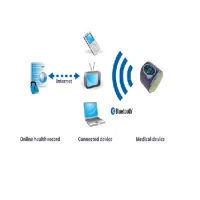Computerised clinical decision support (CDS) has been shown to improve healthcare processes and outcomes in a number of studies, although its potential has yet to be reached. Challenges to CDS development, management, and use are multifaceted — involving people, processes, and technology.
A recent study, reported in the journal BMC Medical Informatics and Decision Making, reveals that key stakeholders — healthcare organisations, CDS content vendors and electronic health record (EHR) system vendors — have different views with respect to challenges in the development, management, and use of CDS.
The three groups share thinking about key aspects of CDS, especially the importance of appropriate manpower, careful knowledge management, and CDS that fits user workflow. "However, views on usability, training, metrics, interoperability, product use, and legal issues differed. Recommendations for improvement include increased collaboration to address legal, manpower, and CDS sharing issues," write Joan Ash, PhD, Professor and Vice Chair, Department of Medical Informatics and Clinical Epidemiology, School of Medicine, Oregon Health & Science University, and colleagues.
"Until these three groups can reach a mutual understanding of the views of the other stakeholders, and work together, CDS will not reach its potential," the authors conclude.
Methodology
Researchers conducted ethnographic fieldwork using a Rapid Assessment Process (RAP) within 10 clinical and five health IT vendor organisations. For clinical sites, five inpatient and five outpatient sites were selected based on variation in commercial system used, maturity of CDS use, geography, and governance structure.
For commercial sites, researchers purposively selected three different types of content vendors so that they could gain a more comprehensive understanding of the issues. Since every hospital the researchers have studied purchases order sets, medication knowledge bases, and clinical information reference resources, they approached three companies that provided those products.
All study participants were purposively selected. At clinical sites, researchers selected subjects for interviewing and observing based on their CDS-related roles (clinical champions, normal users, and sceptical users). During content vendor visits, interviewees included the CEO, vice presidents, content development and management staff, technical/interoperability staff, and informaticians. For the EHR vendors, staff members who were most involved with CDS were targeted.
Results and Discussion
The authors conducted 206 formal interviews with 191 subjects (some were interviewed more than once) and performed 268 hours of observation. Using an inductive analytical approach, the authors generated themes from the clinical, content vendor, and EHR vendor perspectives and compared them.
The three major stakeholder groups involved in CDS share views on the importance of appropriate manpower, careful knowledge management, CDS that fits user workflow, the need for communication among the groups, and for mutual strategising about the future of CDS. However, their views on usability, training, metrics, interoperability, product use, and legal issues differed.
The most severe tensions among the three groups stem from the external characteristics, such as the need for national standards for interoperability that are actually used by vendors. Standards would provide a safe, legal environment in which vendors would be empowered to provide more CDS tools to customers. There is progress being made by standards groups, and the authors say their findings underscore the importance of this work.
To promote adequate understanding among the most important entities critical to successful use of CDS, a “three-way conversation” among content vendors, EHR vendors, and users was recommended by a number of interviewees. These conversations would help to achieve the mutual goal of better healthcare assisted by CDS. Standards groups provide an appropriate venue for such conversations, as do professional associations, especially the American Medical Informatics Association (AMIA) and HIMSS.
Image credit: Flickr
A recent study, reported in the journal BMC Medical Informatics and Decision Making, reveals that key stakeholders — healthcare organisations, CDS content vendors and electronic health record (EHR) system vendors — have different views with respect to challenges in the development, management, and use of CDS.
The three groups share thinking about key aspects of CDS, especially the importance of appropriate manpower, careful knowledge management, and CDS that fits user workflow. "However, views on usability, training, metrics, interoperability, product use, and legal issues differed. Recommendations for improvement include increased collaboration to address legal, manpower, and CDS sharing issues," write Joan Ash, PhD, Professor and Vice Chair, Department of Medical Informatics and Clinical Epidemiology, School of Medicine, Oregon Health & Science University, and colleagues.
"Until these three groups can reach a mutual understanding of the views of the other stakeholders, and work together, CDS will not reach its potential," the authors conclude.
Methodology
Researchers conducted ethnographic fieldwork using a Rapid Assessment Process (RAP) within 10 clinical and five health IT vendor organisations. For clinical sites, five inpatient and five outpatient sites were selected based on variation in commercial system used, maturity of CDS use, geography, and governance structure.
For commercial sites, researchers purposively selected three different types of content vendors so that they could gain a more comprehensive understanding of the issues. Since every hospital the researchers have studied purchases order sets, medication knowledge bases, and clinical information reference resources, they approached three companies that provided those products.
All study participants were purposively selected. At clinical sites, researchers selected subjects for interviewing and observing based on their CDS-related roles (clinical champions, normal users, and sceptical users). During content vendor visits, interviewees included the CEO, vice presidents, content development and management staff, technical/interoperability staff, and informaticians. For the EHR vendors, staff members who were most involved with CDS were targeted.
Results and Discussion
The authors conducted 206 formal interviews with 191 subjects (some were interviewed more than once) and performed 268 hours of observation. Using an inductive analytical approach, the authors generated themes from the clinical, content vendor, and EHR vendor perspectives and compared them.
The three major stakeholder groups involved in CDS share views on the importance of appropriate manpower, careful knowledge management, CDS that fits user workflow, the need for communication among the groups, and for mutual strategising about the future of CDS. However, their views on usability, training, metrics, interoperability, product use, and legal issues differed.
The most severe tensions among the three groups stem from the external characteristics, such as the need for national standards for interoperability that are actually used by vendors. Standards would provide a safe, legal environment in which vendors would be empowered to provide more CDS tools to customers. There is progress being made by standards groups, and the authors say their findings underscore the importance of this work.
To promote adequate understanding among the most important entities critical to successful use of CDS, a “three-way conversation” among content vendors, EHR vendors, and users was recommended by a number of interviewees. These conversations would help to achieve the mutual goal of better healthcare assisted by CDS. Standards groups provide an appropriate venue for such conversations, as do professional associations, especially the American Medical Informatics Association (AMIA) and HIMSS.
Image credit: Flickr
References:
Ash JS, Sittig DF et al. (2015) Multiple perspectives on clinical decision support: a qualitative study of fifteen clinical and vendor organizations. BMC Medical Informatics and Decision Making 2015, 15:35
doi:10.1186/s12911-015-0156-4
Latest Articles
healthmanagement, decision support, CDS, EHR, health IT, clinical stakeholders, interoperability
Healthcare organisations and IT vendors have different views with respect to challenges in the development, management, and use of clinical decision support (CDS).










